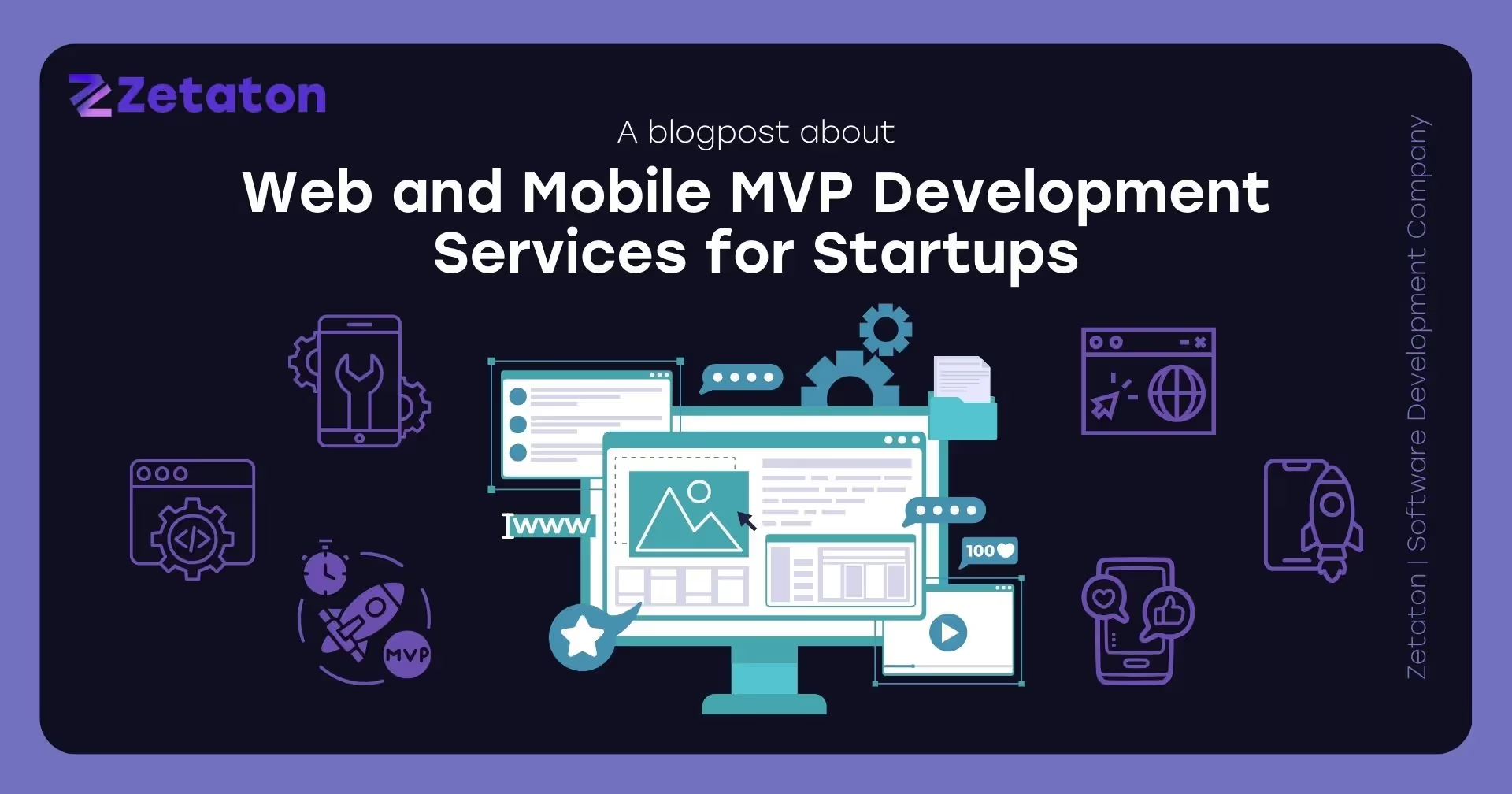
Startups face an uphill battle when bringing a new product to market. The competition is fierce, and resources are often limited. That’s where a Minimum Viable Product (MVP) becomes a game-changer. MVP development allows startups to validate ideas, attract early adopters, and secure funding without overextending resources.
A well-executed MVP is the foundation of a successful startup. It provides a clear roadmap for product development, ensures alignment with market needs, and allows startups to make data-driven decisions. In this article, we’ll explore everything about web and mobile MVP development services, from planning to execution, to help startups launch successfully and sustainably.
An MVP (Minimum Viable Product) is a simplified version of a product that includes only the core features necessary to meet the primary needs of early adopters. The goal is to test the viability of an idea with minimal investment.
Rather than spending months or years developing a full-featured product that may not succeed, startups can use an MVP to gauge market demand and make informed decisions.
Instead of investing thousands (or even millions) into a fully developed product that may fail, an MVP helps startups test the waters with minimal investment. This approach significantly reduces the risk of financial loss. Many startups fail because they build products based on assumptions rather than market demand. MVP development minimizes this risk by allowing real user feedback to drive product iterations.
Startups can’t afford to spend years developing a product. MVP development ensures a quicker launch, enabling businesses to adapt based on real-world feedback rather than assumptions. The sooner you launch your MVP, the sooner you can learn what works and what doesn't, enabling you to pivot or improve based on market needs.
Investors are more likely to support a startup that has validated its concept with real users. A successful MVP demonstrates market demand, increasing the chances of securing funding. Many venture capitalists and angel investors want to see proof of concept before investing. If a startup has already attracted users and generated traction, securing funding becomes much easier.
An MVP is not just about launching quickly—it’s about learning. Startups receive valuable insights from early users, which guide future iterations and improvements. This means that the final product is built based on actual user needs rather than assumptions, increasing the chances of success.
Before development begins, startups must validate their idea. This includes:
Without proper validation, startups risk building a product that nobody wants. Market research ensures that there is a demand for the solution and that the product solves a real problem.
The key to a successful MVP is keeping it simple. Startups must:
A common mistake startups make is overcomplicating their MVP. The primary goal should be to deliver just enough functionality to test the concept and gather feedback.
Selecting the right tools and frameworks is critical. For web and mobile MVPs, popular choices include:
The right stack ensures seamless development and future scalability.
User experience plays a crucial role in MVP success. A clean, intuitive, and engaging design ensures users stay longer and interact positively with the product.
This phase involves coding, testing, and iterating based on feedback. Agile development methodologies are commonly used to ensure flexibility.
Before launching, rigorous testing is essential to eliminate bugs and optimize performance. Beta testing with real users helps refine the product further.
Overcoming feature bloat by focusing only on what truly matters for early adopters. Startups should identify must-have features and avoid unnecessary complexity.
Building an MVP with future growth in mind by using scalable architecture. Choosing cloud-based solutions and modular development frameworks can help in scaling efficiently.
Using real user data to refine and improve the MVP in an iterative cycle. Continuous feedback collection and A/B testing ensure that the product evolves to meet user needs.
The cost of MVP development varies depending on complexity, team expertise, and technology used. However, MVPs generally cost between $10,000 and $100,000, depending on the project scope. The pricing depends on factors such as:
MVP development is a crucial step for startups aiming to bring an innovative idea to life with minimal risk. By focusing on core functionalities, leveraging the right technology, and continuously iterating based on feedback, startups can create successful web and mobile MVPs that pave the way for long-term success.
Web and mobile MVP development services for startups involve creating a Minimum Viable Product (MVP) that includes the core features needed to test an app’s functionality on both web and mobile platforms. This approach helps startups validate their ideas quickly and gather user feedback before scaling up development.
By leveraging web and mobile MVP development services, startups can reduce initial costs, minimize risks, and enter the market faster. These services allow entrepreneurs to launch a basic version of their product, gather real-time user insights, and iterate based on feedback, ensuring that the final product meets market needs.
In web and mobile MVP development services, startups typically use modern frameworks and technologies such as React, Angular, or Vue.js for the web, and React Native or Flutter for mobile app development. These tools enable rapid prototyping and cross-platform compatibility, which are essential for MVP success.
The timeline for building an MVP with web and mobile development services for startups usually ranges from 8 to 16 weeks, depending on the complexity of the app and the number of core features required. An agile development process helps accelerate the delivery and allows for quick iterations.
When selecting a provider for web and mobile MVP development services, startups should consider the provider’s industry experience, portfolio, client testimonials, and technical expertise. It’s important to choose a partner that follows agile methodologies and offers robust post-launch support to ensure smooth scaling.
An effective MVP demonstrates a startup’s vision and market potential, showing investors a tangible product with proven user interest. Web and mobile MVP development services enable startups to create a functional prototype that can be used in pitches and demonstrations, increasing confidence and the likelihood of securing investment.